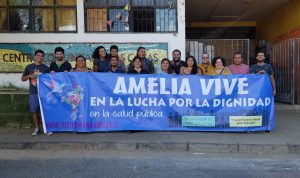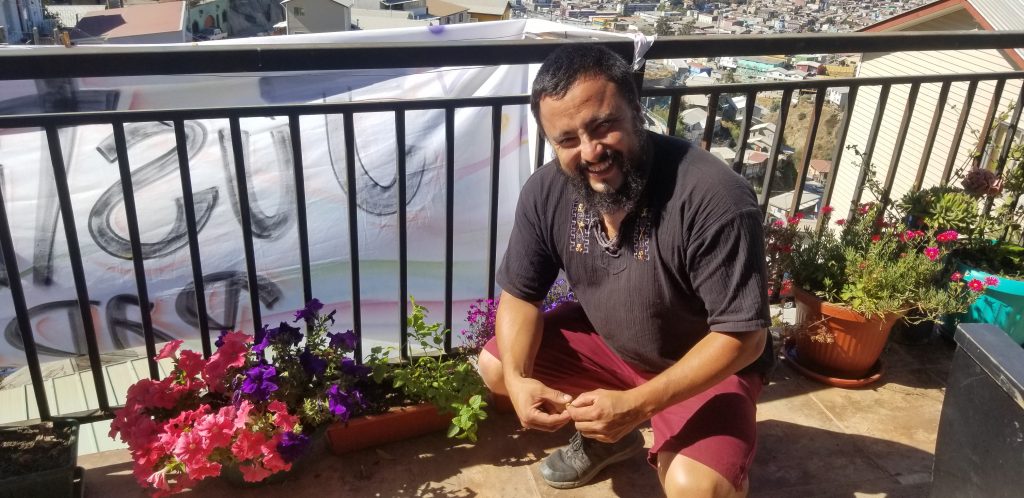Con la Fuerza de los Cerros: Transforming Chile from Below
According to data provided by the Chilean Government, roughly 6.4 million people participated in the elections held on Sunday, May 16, 2021, representing a turnout of 43%. The figure was below the Government’s forecast of 7 million votes. Leftist and little-known candidates also pulled off a string of surprises in local elections. At the same time, the Government lost its representation in the Constituent Assembly, as most of the elected constituents come from left-wing movements, political parties, and independents. According to Cristobal Huneeus, Director of Data Science at Unholster in Santiago, “among the most important issues that (elected candidates) back are human rights, civil society, the environment, and the idea that the current economy doesn’t work in people’s favor.” (More information here.)

Popular Education for Health (EPES), a Global Ministries’ longstanding Partner in Chile, has been sensitive to the ways people are longing for a change in the social, economic, and political discussion. They saw the need to promote this new awakening of community participation in political processes. EPES provided support in disseminating information on the candidacies for two local councilors. One of the two candidates they supported was Mauricio Salazar, the Las Cañas Community Center social leader, candidate for councilor for the Valparaíso Municipal Assembly.
Mauricio counted with extensive experience in his municipality. As the Director of the Las Cañas Community Center, Mauricio was a first responder to a firestorm in April 2014, which devoured 3,000 houses and left 12,000 residents homeless in the hills of Las Cañas. Mauricio and the Community Center Volunteer Team provided emergency relief regarding the reconstruction of houses, psychosocial support, workshops, and training. They worked with the essential needs on a short-term basis and assist the community in its long-term vision and reconstruction. In that sense, Mauricio and his team of collaborators started reaching decision-making bodies at the local level on behalf of the interests of the community.

Mauricio also became a strong advocate for the right to healthcare for his community and Chile in general. He and his wife, Camila Jorquera, lost their daughter, Amelia, in July 2018, at 21 months, at the Carlos Van Buren Hospital in Valparaíso. Amelia died due to medical negligence and the consequences of the great inequality the Chilean society faces in accessing healthcare. At that time, Global Ministries and EPES joined efforts to organize a self-care retreat for the families and the closest friends of Mauricio and Camila. They had a space to be together, rest, share, and collectively process their pain and to continue with their struggle. A community campaign called “Justice for Amelia” raised the need for a more sensitive and relevant healthcare policy in Valparaíso. Out of that healing experience, Mauricio decided to work more closely in the political arena by running as a councilor, representing the struggles, dreams, and challenges of his community.
Mauricio built a campaign primarily based on self-recorded videos, visiting homes, talking and interviewing people, assisting them to express their own needs and dreams, traveling up and down the hills of Valparaíso as an independent candidate. He shared how he developed “a lot of strength and conviction that we can achieve a space in the municipal council.” ¡Con la fuerza de los cerros! (With the strength of the hills!) was his campaign cry, putting in plain sight those places that could be high and visible to the eyes of the city but invisible in terms of the real needs of the people there. “The time has come for communities to occupy institutional spaces!” he said in a recent video as he embraced some youth at a rally in Las Cañas Community.
Mauricio couldn’t prevail in his attempt to be elected as councilor for Valparaíso. However, he could accumulate more votes than other candidates that could enter into the Municipal Assembly. The design of the electoral system puts a heavy shift in favor of candidates that are part of political parties. He expressed a degree of frustration for all the work done, freehand, without funding, and without “magical godfathers.” However, he could accumulate the sixth majority of votes out of more than 100 candidates, having obtained more votes than five of the current elected councilors. A new political force, 100% independent from traditional political parties, emerged with Mauricio as the leader.
Chile continues its path into the discussion and approval of a new Constitution by electing indigenous leaders previously accused as terrorists by authorities, with no proof, as members of the Constituent Assembly. The country also rejected traditional political parties, alliances, and chose to elect independent and new movements as its representatives in counties, municipalities, and the Chilean Constituent Assembly. It could be fair to say that Mauricio is part of the fresh winds of change and justice in his country.
Learn more about the work of the EPES here.

